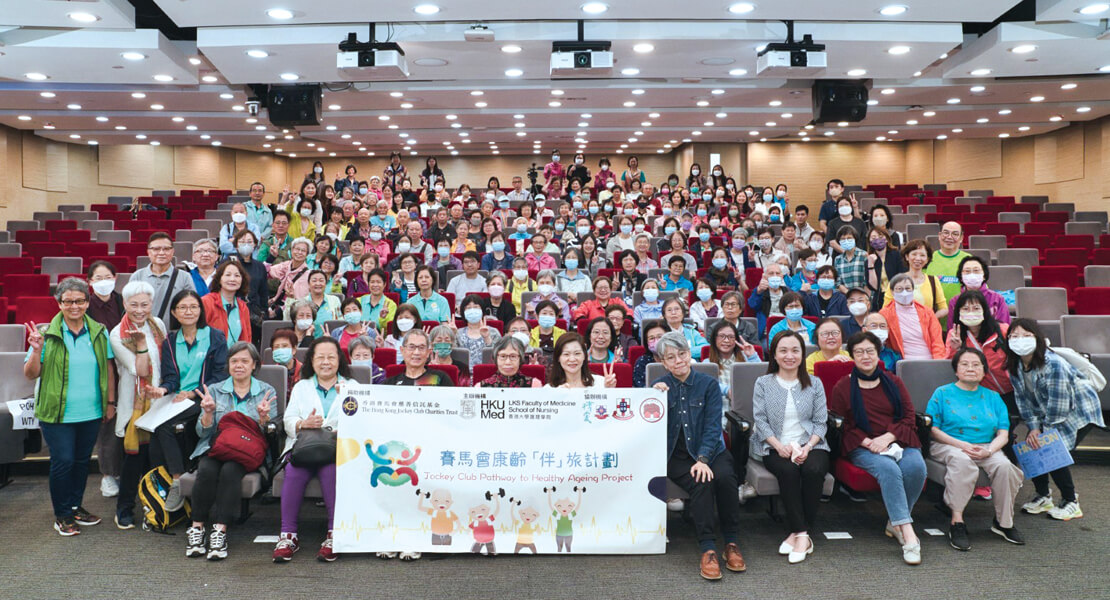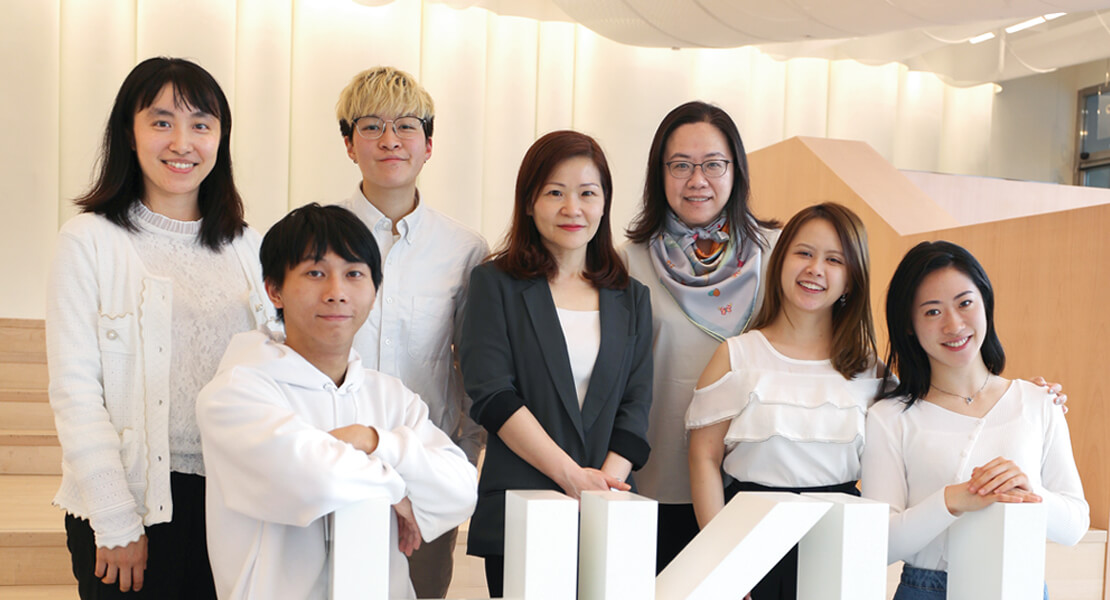
Research
An HKU Nurse-led Initiative for the Global Decade of Healthy Ageing
Professor Doris Yu Sau-fung | Professor
The global pace of population ageing will accelerate rapidly in the coming decade, with the United Nations (UN) predicting a 34% increase in the total number aged over 60 years old, equal to about 1.4 billion people.1 To highlight the issue, the UN endorsed the period 2021-2030 as the Decade of Healthy Ageing, with a mission of bringing together different stakeholders to develop concerted and sustained global action to improve the lives of older people, their families and the communities in which they live.2 The core aim is to optimise the functional status of older people to ensure they can enjoy an engaging and meaningful life. The World Health Organization (WHO) subsequently developed the comprehensive Integrated Care of Older People (ICOPE) framework for thorough functional assessment and sensitive care prescription, and to promote healthy ageing.
HKU’s School of Nursing has responded to these developments with a nurse-led capacity-building initiative, the Jockey Club Pathway to Healthy Ageing (JC Path-HA), to increase our society’s preparedness for population ageing.
The JC Path-HA adopts the WHO-ICOPE model by incorporating comprehensive and systematic health monitoring on five health dimensions, including locomotor health, psychological health, cognition, sensory function and vitality, to guide personalised care prescription. Integrated into the initiative is an evidence-based approach, consisting of critical pathways, empowerment-based behavioural modifications and health-orientated peer support, to ensure healthy ageing promotion can be self-directed and sustainable.
From September 2022 to June 2023, the HKU nursing team conducted a territory-wide ICOPE-based comprehensive health assessment of 3,070 older adults from seven geographic regions in Hong Kong. The data showed that the prevalence of accelerated ageing – defined as a decline in two functional aspects of the ICOPE model – was more than 50%. Across the five dimensions assessed, locomotor function and vitality in terms of metabolic health were the most affected.
By using advanced statistical analysis, four integrated health profiles were identified to elucidate how different dimensions of functional impairment are interacting with one another. More specifically, four integrative patterns of functional impairment were identified, including a musculo-mobility pattern, compromised metabolic-sensory-mobility pattern, nutritional-metabolic pattern and psycho-cognitive pattern. These findings provide more information for developing more sensitive integrative care to promote healthy ageing.
A total of 806 older adults with accelerated ageing were referred to the JC Path-HA Project, which was the programme’s capacity limit. Goal-oriented, person-centred functional optimisation care plans were provided and multiple strategies were deployed, including health counselling by nurses and peers, case management lifestyle monitoring and multi-media health coaching, based on individualised health needs. An outcome-focused evaluation identified significant improvements in the participants’ mobility function, hand grip, nutritional status, cognitive function, and geriatric symptoms, including insomnia and depressed mood. They were also found to report a significantly better quality of life.
The JC Path-HA Project is still ongoing. Based on the interim experience, our team conclude that the care model is highly feasible and effective for improving the functional status of older adults and promoting their well-being. In addition, we have recruited and trained 200 health coaches aged 50+ to support health counselling and case management, recognising that peer influence plays a crucial role in encouraging lifestyle modification among older adults.
The programme details and preliminary results have been submitted to the online platform of the United Nation Decade of Healthy Ageing for sharing with international stakeholders. In the coming year, the HKU nursing team will also extend the training to social care workers and conduct a more comprehensive process and outcome evaluation of the JC Path-HA Program. Further information about the programme can be found at https://hkjc-pathhahku.com/home
Acknowledgement: “Pathway to Healthy Ageing” is funded by The Hong Kong Jockey Club Charities Trust.
Reference:
- United Nations. World Population Ageing 2019 Highlights. New York: United Nations, 2019.
- World Health Organization. The Decade of Healthy Ageing: a new UN-wide initiative. Retrieved from: https://www.who.int/news/item/14-12-2020-decade-of-healthy-ageing-a-new-un-wide-initiative on 12th Jan 2021.






